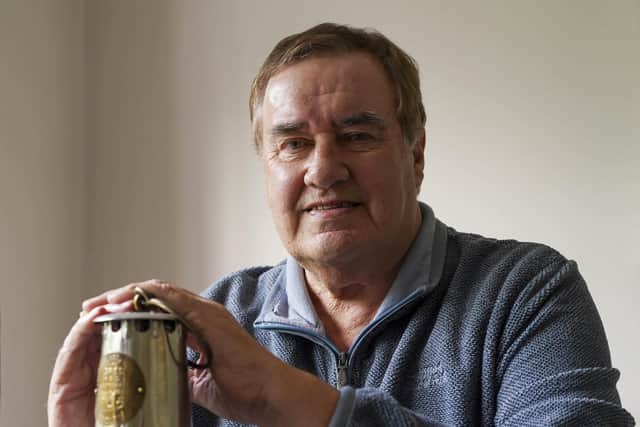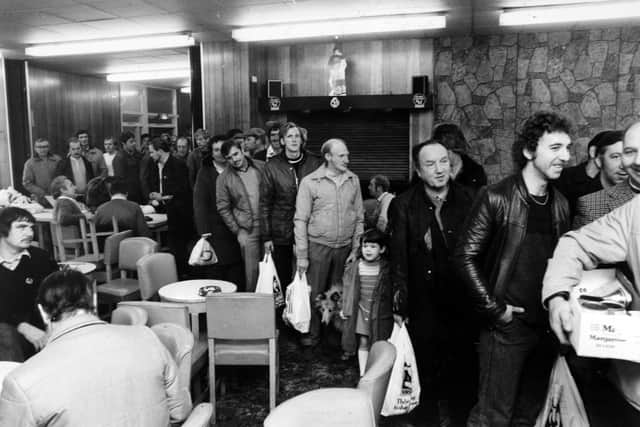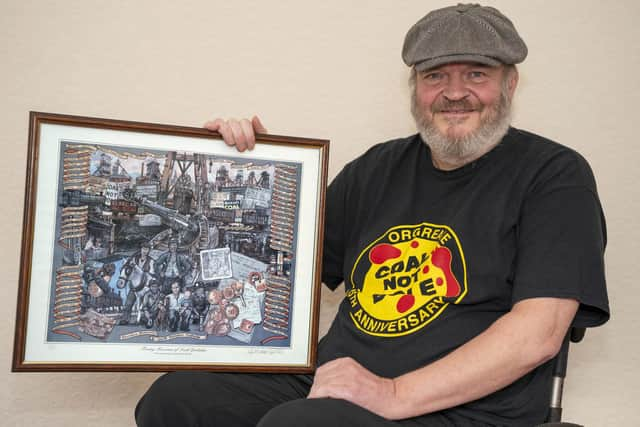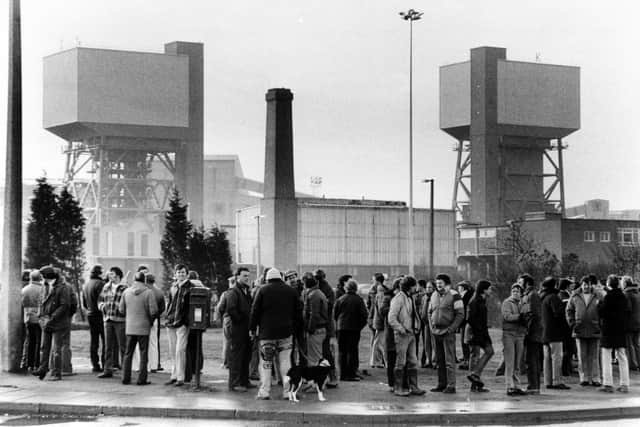MINERS’ STRIKE 40TH ANNIVERSARY: ‘We knew that we were in a fight for the survival of the industry and a way of life’
and live on Freeview channel 276
Those who have shared their stories with the Express said it was clear something was building in the run-up to the strike.
Many miners believe it was an ideological move by the Conservative government of the day to crush the unions and bring massive change to Britain.
Advertisement
Hide AdAdvertisement
Hide AdStriking miner Denis Doody said: “We saw the closures as a threat not only to our jobs but to future generations and our communities, so we were prepared to challenge that.


“We knew that we were in a fight for the survival of the industry and a way of life.
"I was one alongside 56,000 other Yorkshire miners, and most of the British coalfield, who went on strike and began picketing pits.
"Our part of the world is traditionally loyal to the union.”
Advertisement
Hide AdAdvertisement
Hide AdStriking miner Nigel Pearce, who was later a Wakefield district councillor, said: "Coal miners knew a strike was coming. It seemed they were attacking the rights of the trade union movement.


"Since then there has been a massive transfer of wealth from the many to the few.
"Water, electricity, telecoms – all of these were privatised after. If you beat the miners you can beat anyone – it allowed the Thatcher government to carry out mass privatisation. Look at selling off council houses, which we now know was a mistake.
"Even the current energy crisis we have today began in the Thatcher era.
Advertisement
Hide AdAdvertisement
Hide Ad"It turned an optimistic population into a pessimistic population.”


He said the absence of community is evident in mining towns up and down the country.
He said: “The villages were built around the mines and there because of the mine. When the mines closed the heart was dragged out, shops closed.”
Looking back Mr Pearce believes that if the strike had been won then it would have been more difficult for any successive government to push through certain economic policies.
Advertisement
Hide AdAdvertisement
Hide AdHe said: “I don't think they would have gotten away with the privatisation. That was the big thing – the wealth those industries created used to go into common coffers for the public but now it goes into private coffers.”


Shaun McLoughlin was a miner at Kellingley Colliery at the time of the strike and is now the mine director at the National Coal Mining Museum.
He said there was disappointment that a national ballot was not held but workers at his pit joined their Yorkshire colleagues on strike.
He said: “I think once Nottinghamshire didn't come out there was a lot of bitterness then. There’s the famous saying that unity is strength and once we didn't have that we lost the strength.
Advertisement
Hide AdAdvertisement
Hide Ad“After a few months the mood changed because the hardship was starting to bite with lots of people. That's when bitterness and rivalry came with the other coalfields that didn't go out on strike.
“It was a real struggle, week after week racking up more debt on the mortgage and basically you had to totally change your way of life, how you bought things. We became lot more frugal.”
He said the end of the strike was both “relief and disappointment”.